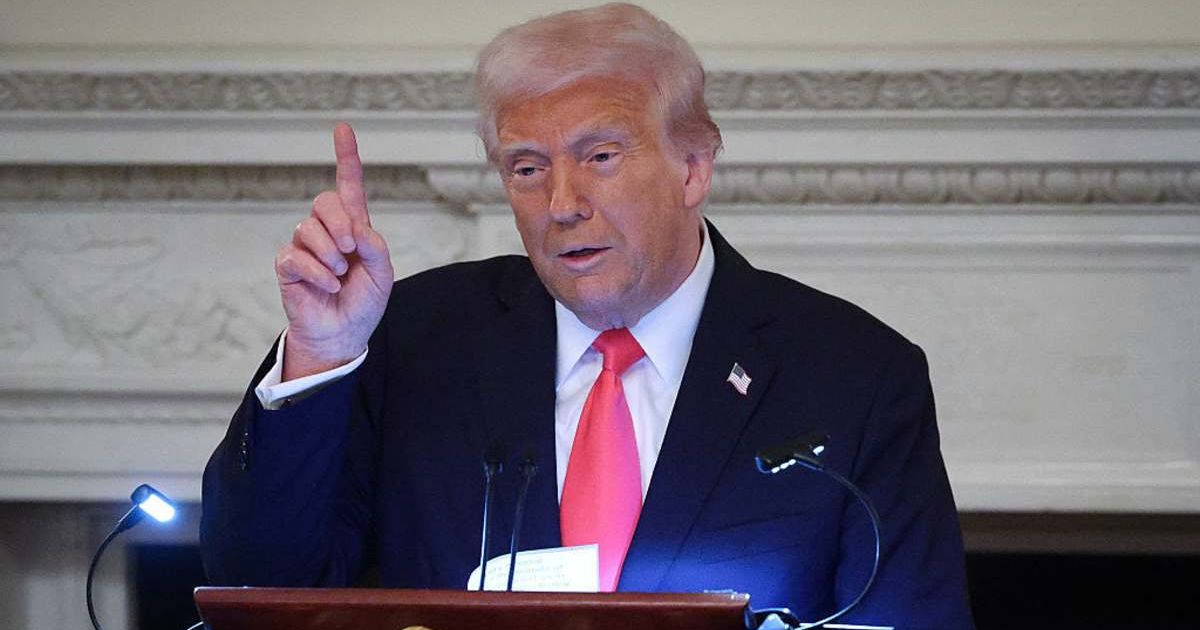Psychologists flag two signs in Trump’s speech and behavior as evidence of cognitive decline

WASHINGTON, DC: Concerns over President Donald Trump’s cognitive health resurfaced as he continued his second term at the age of 79. Two psychologists pointed to both behavioral and physical signs that they believed could indicate signs of neurological decline.
These observations came as public and political scrutiny of the president’s mental fitness grew more intense.
🚨 NOW: Trump pulls no punches on immigration and energy, stating the plain truth: "Europe has a tremendous problem... we've sealed our borders, nobody coming in, hundreds of thousands being taken out." And on windmills? "They're killing us, they're killing the beauty of our… pic.twitter.com/WJ8w3wVycv
— Darren Grimes (@darrengrimes_) July 27, 2025
Psychologist warns Trump’s mid-conversation shifts may signal cognitive issues
During a recent meeting with European Commission President Ursula von der Leyen, Trump abruptly shifted from discussing immigration to declaring, “We will not allow a windmill to be built in the United States. They’re killing us. They’re killing the beauty of our scenery.”
He then spoke for two minutes unprompted about windmills, claiming they harm whales and birds, and criticized wind energy overall.
Dr Harry Segal, senior lecturer in psychology at Cornell University, told The Guardian that Trump’s increasing tendency to abruptly change topics mid-conversation is a red flag.

“He’ll just switch topics without self-regulation, without having a coherent narrative,” Segal noted, describing the behavior as an example of unregulated digression. “It’s where he takes an idea or something that’s happened and adds to it things that have not happened.”
Another notable example, Segal said, was Trump’s February claim during a meeting with Ukrainian President Volodymyr Zelenskyy that Ukraine had started the war with Russia, a false claim widely debunked by global leaders and media.
More recently, Trump falsely claimed during a speech to Republicans that grocery prices had fallen, despite clear economic data indicating that prices continue to rise.
Psychologist raises new concerns over Trump’s declining motor functions

Psychologist Dr John Gartner, a former assistant professor at Johns Hopkins University, also weighed in on Donald Trump’s health. He believes that motor deterioration, alongside language issues, suggests a deeper neurological problem.
Speaking on 'The Dean Obeidallah Show,' as reported by Mirror, Gartner pointed out that Trump appears to have difficulty walking, a slowed gait, and has allegedly been tripping more frequently in public.
The doctor referenced old footage of a younger Trump participating in sports, noting his surprising agility. “We found some of him doing athletic activities in the 80s. I have a film of him playing volleyball, diving to dig the ball and popping up and hitting a high shot, he was very coordinated,” he remarked.
🚨 WATCH: After months of footage showing 80 year old Trump dragging his right leg, new video from yesterday’s golf outing shows him struggling to step out of a cart—his legs looking far from stable.
— Chris D. Jackson (@ChrisDJackson) March 2, 2025
What’s going on here? pic.twitter.com/EENBARsPHO
Comparing videos of Trump from the 1980s to now, Gartner said, “And now, you know he really does have trouble getting up the stairs, he does trip and fall. I hate to do a gotcha thing, 'Oh he tripped on the stairs,' but no, his gait is slow, he is falling.”
Gartner further referenced reports of a distinctive “leg swing” when Trump walks, particularly in his right leg, describing it as potentially diagnostic of frontotemporal dementia, according to neurologists he consulted.
Despite these observations, Trump passed his annual medical examination earlier this year and was declared fit to serve.










